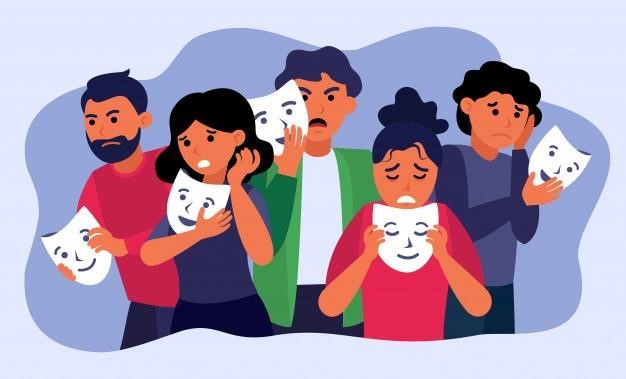An Overview of Dissociative Fugue

List of Contents
Introduction of Dissociative Fugue
Dissociative fugue is also known as a psychogenic fugue or fugue state is a type of dissociative amnesia. Dissociative fugue includes memory loss related to personal autobiographical information which is combined with sudden travel, unexpected experiences, and getting a new identity.
“Fugue” means a flight that is related to wondering or traveling away from the present situation. Dissociative fugue is a type of amnesia that includes personal identity, personality, and memories. It is a type of temporary amnesia that can last long minutes, hours, days, weeks, months, years, and longer.
Dissociative fugue basically includes unplanned travel or wandering wherein the person establishes a new personality in a new location which is very different from their past identity. As per updated DSM-5, the dissociative fugue is considered to be a subtype of dissociative amnesia. Overall, dissociative disorders include impairment of memory, identity, consciousness, perception.
Symptoms of Dissociative Fugue

Below are some common signs and symptoms of dissociative fugue:
PS: Symptoms of Dissociative Fugue are totally dependent on the situation or case.
During the Fugue State
If someone is in the middle of a fugue state, they might show the following signs related to dissociative fugue:
- Confused about the identity
- Unsure about the past
- Feeling confronted when challenged about their past identity
Additionally, it is essential to observe that people who are in the midst of a fugue state might now show signs that reveal any kind of mental health issues. The reason behind this is, they believe that their new identity is their actual identity.
After the fugue state
Below is the after fugue state signs and symptoms:
- Depressive signs
- Grief
- Shame
- Anger or discomfort
- Distressed about everything
- Feeling guilty
Fact Check: People experiencing the symptoms of a dissociative fugue can experience multiple episodes of dissociative fugue with different symptoms. Therefore, it is important to keep an eye on them, monitor them closely, and get professional help whenever observed in the first instance.
Causes of Dissociative Fugue

Below are some common causes of dissociative fugue:
- Sexual abuse during childhood
- Violence (torture or rape)
- Suicidal thoughts or attempts
- Combat violence
- Natural disasters
- Accident
- Committing a homicide
If you are experiencing suicidal thoughts, kindly check:
It can also happen that the person might look fine after the trauma, however, the reminders of the past actually trigger the symptoms of dissociative fugue. Additionally, it is observed that there can also be a genetic link to dissociative disorders.
Differences Between Dissociative Amnesia Vs. Dissociative Fugue
Below are some of the common differences between dissociative amnesia and dissociative fugue:
Dissociative Amnesia |
Dissociative Fugue |
|
|
|
|
|
|
|
|
|
|
Treatment of Dissociative Fugue

Treatment of dissociative fugue totally depends on the situation and severity of the case. Some episodes or triggers might resolve instantly or some might take some more time or maybe years. No one can actually tell the actual resolving time. Therefore, seeing a therapist is the most important thing to do. The goals of the treatment by a therapist are:
- To help people recognizing their actual identity again.
- To develop coping strategies.
- To introduce coping strategies for the original trauma or history.
There are numerous treatment measures that can help people with a dissociative fugue.
- Psychotherapy for replacing negative thoughts
- Medication for anxiety and depression.
- Family therapy or group therapy
- Art therapy
- Clinical hypnosis
- Eye movement desensitization and reprocessing (EMDR) for treating flashbacks and PTSD.
- Dialectical behavior therapy (DBT) for helping and managing overwhelming thoughts.
- Relaxation techniques for managing symptoms and monitoring the internal state.
As mentioned above, getting a proper diagnosis and treatment is important to recover from dissociative fugue. Connect with a certified mental health provider from Betterhelp to get proper diagnosis and treatment from here.
You can also read our review of Betterhelp from here.
Coping strategies of Dissociative Fugue

Coping and recovering from dissociative fugue can be challenging. Since, you never know the cause, severity, and situation of the episode. Therefore, getting proper help from a certified therapist is the first step towards coping and recovering. Once you’re properly diagnosed, you can start up with these below-mentioned coping strategies for the dissociative fugue.
PS: Please seek the approval of your therapist before starting with these coping strategies. Do not practice these coping strategies before getting diagnosed.
- Receive proper therapy to cope with the fugue.
- Deal with all your internal and mental issues for seeking the proper benefits of the therapy
- Seek support from your family.
- Try to eliminate or reduce potential triggers or episodes.
- Depressive signs.
- Try art therapy.
- Take your medications regularly.
If you or your loved ones are experiencing the same, you see a therapist before seeking personal advice. To connect with the certified psychologist, click here.

Great for a large network of licensed therapists
-
$60 to $90/week, billed every 4 weeks
-
Therapy via messaging, phone, or live video chat
-
Flexible cancellation at any time
20% off your first month

Great for CBT Based therapists
-
$40/week, billed every 4 weeks
-
Therapy via messaging, phone, or live video chat
-
Specialization for CBT based Therapy
20% off your first month

Best for Treatment Plants
-
$60 to $90/week, billed every 4 weeks
-
Therapy via messaging, phone, or live video chat
-
Flexible cancellation at any time
$100 off your first month with code SPACE
I hope this blog helps you to understand an overview of dissociative fugue. For more such content, follow Calm Sage on all social media platforms.
Thanks for reading.




















